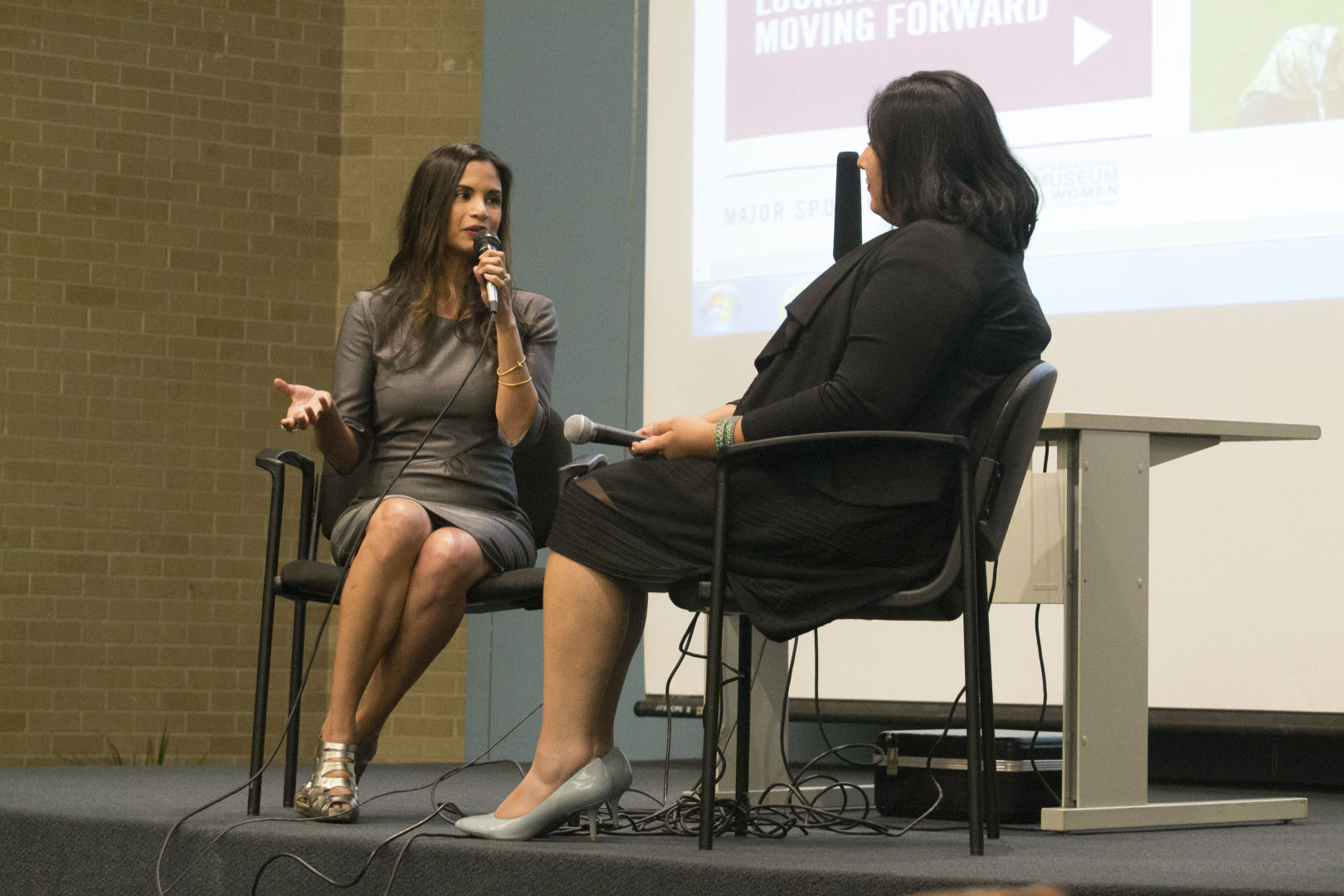

Houston-based journalist Eesha Pandit moderates the discussion of what UH students think of when they hear the words “Muslim women”. | Sara Samora/The Cougar
American Muslim author Samina Ali discussed her work as a lead curator, an award-winning author and an advocate of women’s health and women’s rights and Muslim women’s experience in the United States and around the world at the Muslim Women and Digital Activism seminar.
“What is the first word that comes to mind when you hear the words, ‘Muslim woman’?” Ali said.
English junior Rachel Freeman said she thought, “conservative.”
Psychology senior Nohal Hussain said Islam is her religion, thus her thought was, “beautiful.”
Accounting sophomore Tram Nguyen said she thought about men being dominant over Muslim women.
Ali said every answer she has ever heard was predictable. Muslim women were usually associated with words such as submissive and extremist.
“When people think of a Muslim women, they think she’s veiled; I don’t veil,” Ali said. “They think she’s Arab, I’m not Arab. They think she’s a victim; I can assure you I’m not a victim. Or they think she’s oppressed.”
History assistant professor Leandra Zarnow said she always felt that Muslim women were brave.
“They are in the line of attack in this moment when we focus on Islam phobia,” Zarnow said.
Zarnow mentions one of the reasons she brought in Ali was to shift the conversation and to demonstrate the range of voices and range of experiences that Muslim women in the U. S. and abroad bring to the table.
“I was always bombarded by the stereotype that they had no choice, and they were pretty much submissive,” Freeman said. “After this talk, it really opened my eyes.”
Hussain said she learned a lot about things that were new to her as a Muslim, such as walking into the mosque from behind.
“Since I was a kid, we were always supposed to go a separate way (the backside),” Hussain said. “And like (Ali) said, (Muslim women) are starting to go from the front.”
In 2004, Ali and four other Muslim women created Daughters of Hajar, an American feminist Muslim organization. In that same year, the women walked through the front door of a mosque and prayed in the main hall. Since then, many mosques had followed, allowing women to enter through the front door.
In fact, Ali often gets told that she was not what they thought a Muslim would be. She has written a novel, “Madras on Rainy Days.”
Ali also curated the International Museum of Women online exhibition, Muslima: Muslim Women’s Art & Voices. The exhibit debuted in March 2013 and features thought pieces, artwork and long form created by Muslim women.
When a person visits the Muslima site, they sees various writings, art works and photos on the home page. Each time the site visitor clicks on the Muslima Home link, the site refreshes with more featured works.
Choice is something Ali stressed in the seminar. In Ali’s debut novel, the main character, Layla, has been set up in an arrange marriage by her parents. She rebels and dates another man, then becomes pregnant. Layla cannot confide in anyone of her dilemma.
“She doesn’t know she has the right to chose,” Ali said. “She doesn’t know this, because she’s never been told. It’s easy to control women when they don’t know their rights.”
news@thedailycougar.com
—
“American Muslim author bridges stereotype gap with reality” was originally posted on The Daily Cougar
